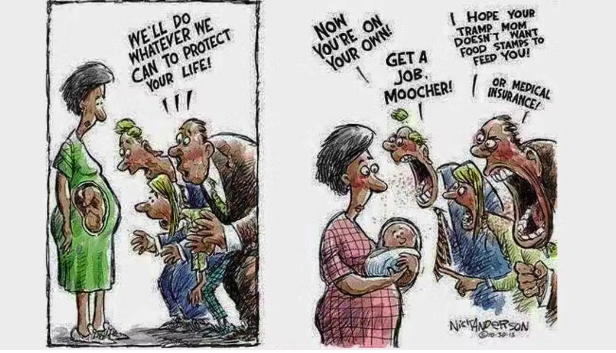Key Questions: Dad, is abortion wrong?
1. What about the Old Testament law about miscarriages?
Some appeal to Exodus 21:22-25 as biblical support, if not for abortion, at least for treating unborn children as less than full persons.
The passage is a law that gives the penalty for when a man hits a pregnant woman in the midst of a fight, causing her to give birth prematurely.
After the birth, the text commands a fine if there is no harm, but a like penalty (life for life, eye for eye, etc.) if there is harm.
Some translations, comparing this law to other similar ones in the ancient Near East, interpret the premature birth as a “miscarriage” with the “harm” only referring to the mother.
Therefore, some argue that the Bible sees an unborn child as less valuable than a human who has been born, since the death of the unborn baby is only punished with a fine, unlike the harm done to the mother.
However, throughout the Old Testament, the phrase describing the birth in the passage refers to live births, and there are other terms the law could have used to refer to a miscarriage.
So other translations simply see this as a premature birth and the “harm” referring to either the mother or the baby (see article below).
Though the passage is somewhat ambiguous, it is hardly a strong argument for the Bible allowing abortion.
It likely treats harm caused to a baby by removing it premarturely from the womb as equal to harm to its mother.
But, at the least, it commands a punishment for doing something that causes a miscarriage (ancient Near Eastern laws also forbid causing miscarriages).
2. Are Christians “anti-choice”?
The “choice” at the heart of the abortion debate is, in the vast majority of cases, only the last in a long sequence of choices, including when and with whom a woman has intercourse.
Though Christians may disagree with some of those choices along the way, they are not advocating for laws to restrict them.
The freedom to choose to take the life of another human being is not something that Christians can support.
The sixth commandment forbids murder (Exodus 20:13).
People on both sides of the abortion issue support laws that forbid certain choices.
Choice is not an absolute good; it is only good when the right thing is being chosen.
However, Christians should appreciate that some women choose abortion because they feel they have no other choice.
This should inspire us to love our neighbors better, especially the poor and less fortunate, so that they have the freedom to make the better choice: life.
3. Do Christians only care about life before birth but not after?
This cartoon conveys well this common charge:
The moment of birth has become the great dividing line in the abortion debate.
The pro-life movement and the Republican party with which it is widely associated is characterized as caring for the unborn child before that moment.
The pro-choice movement and the Democratic party with which it is widely associated is characterized as caring for the born child after that moment, including when that child may be pregnant herself at some point.
Christians, however, cannot compartmentalize their concern for life like this.
The concern for life with which God has entrusted us transcends political parties.
Whether or not we believe certain government programs actually deliver the benefits they promise, Christians should be known for our loving care for life at every stage and in every socioeconomic group, from womb to tomb.
As James 1:27 says, “Religion that is pure and undefiled before God the Father is this: to visit orphans and widows in their affliction, and to keep oneself unstained from the world.”
In fact, Christians give charitably and volunteer at a higher rate than those without religious faith, including fostering and adopting children and investing significantly in crisis pregnancy centers to support women.
4. What about hard cases, such as rape, incest, and fetal abnormality?
The vast majority of abortions do not involve these hard cases, which make up less than 6% of abortions combined.
We should acknowledge the fear that motivates this concern.
But it doesn’t change the reality that neither the circumstances of a baby’s conception nor its likelihood of disability would justify ending its life.
Though rape and incest are terrible acts of violence against an innocent person, so is abortion.
Aborting a child because of an abnormality is discrimination against people with disabilities.
We don’t cure disease by killing the patient.
We should show compassion for women in these difficult situations, but that compassion should be expressed through supporting them rather than pitting them against their babies.
5. If we outlaw abortions, won’t women just get them in dangerous back-alley or self-induced abortions?
The number of deaths from illegal abortions before Roe legalized the practice is often exaggerated.
The CDC only reported 39 of these deaths in 1972, which is still a tragedy, but far from the “thousands” often cited by abortion supporters.
A prominent popularizer of this “thousands” claim, Bernard Nathanson, admitted it was a convenient lie.
Legalizing abortion does not eliminate abortion deaths, which still occur in legal abortions.
The ease of procuring abortions increases the number that are performed and therefore the likelihood of these deaths.
There’s no such thing as a “safe” abortion: one person dies and the other person is put at risk of serious complications including death.
Historically, deaths from abortion decreased from the 1940s to the 1970s through better healthcare not legalization of abortion, which came afterwards.

